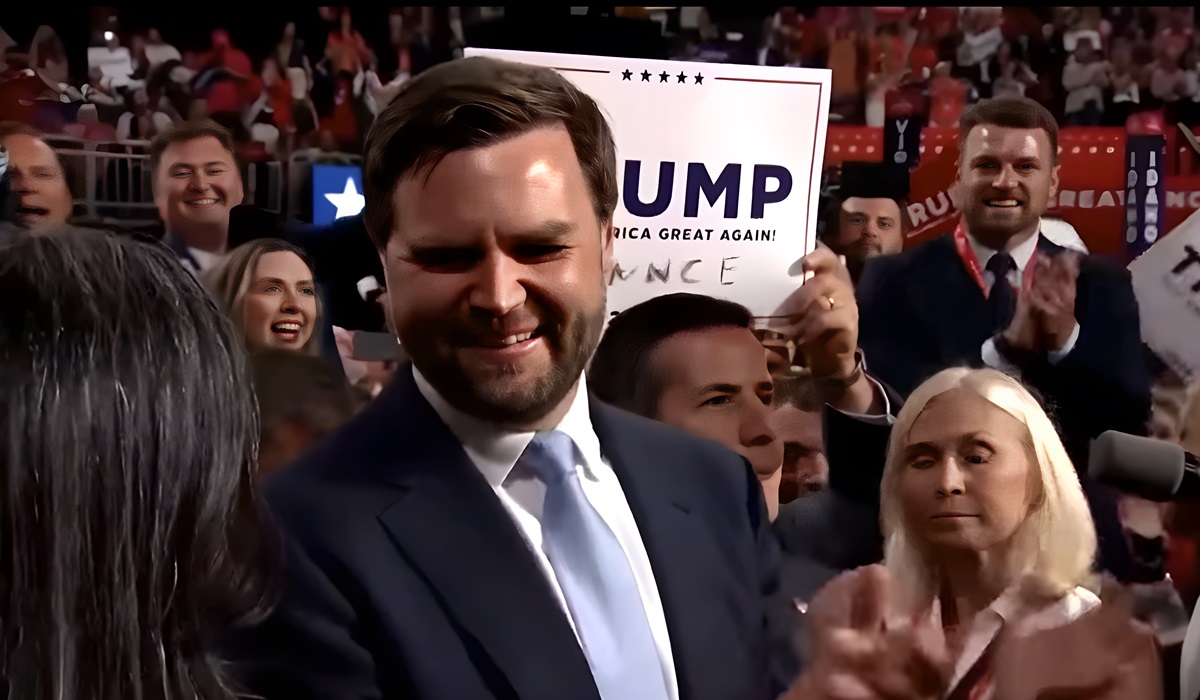The Selective Memory of Politics: How Disparaging Comments Become Irrelevant in the Race for the Presidency
In the turbulent world of politics, the search for a vice-presidential running mate often appears fraught with controversy and contradiction. Yet, one recurring theme is the remarkable ability of candidates to overlook past criticisms for the sake of political expediency. This phenomenon is evident in the relationship between Joe Biden and Barack Obama, and perhaps even more strikingly, in the evolving dynamics between J.D. Vance and Donald Trump.
When Joe Biden was chosen as Barack Obama’s running mate in 2008, many were surprised given Biden’s previous remarks about Obama. Biden had once referred to Obama as “the first mainstream African-American who is articulate and bright and clean,” a comment that sparked significant backlash for its condescending tone. Yet, in the high-stakes game of political strategy, such statements were swiftly relegated to the background. Obama and Biden’s partnership flourished, demonstrating that prior disparaging remarks could be overshadowed by political alignment and mutual benefit. The selection of Biden highlighted a broader trend: when it comes to securing a win, historical grievances are often sacrificed on the altar of political pragmatism.
A similar, if not more glaring, example can be found in the relationship between J.D. Vance and Donald Trump. Vance, the author of “Hillbilly Elegy,” initially emerged as a vocal critic of Trump during the 2016 presidential campaign. He described Trump as “cultural heroin” for the white working class and voiced deep concerns about Trump’s impact on American politics. Vance went further, comparing Trump to Adolf Hitler. In his scathing assessment, Vance remarked, “I go back and forth between thinking Trump is a cynical asshole like Nixon who wouldn’t be that bad (and might even prove useful) or that he’s America’s Hitler. How’s that for discouraging?” This shocking comparison highlighted Vance’s profound alarm at Trump’s rise and potential influence.
Vance did not mince words when evaluating Trump’s policies, suggesting they were not just impractical but morally indefensible by stating, “Trump’s actual policy proposals, such as they are, range from immoral to absurd.” His blunt assessment of Trump’s intelligence was evident in his exclamation, “My god what an idiot.” This frustration with Trump’s rhetoric and approach to governance was further underscored by Vance’s outright dismissal of Trump’s suitability for the highest office in the land with the statement, “Trump is unfit for the presidency.” His critique extended to Trump’s manipulation of public sentiment, noting, “I continue to be amazed by Trump’s ability to fuel this sort of cynicism.”
Despite these disparaging comments, the landscape of Republican politics shifted dramatically. By the time Vance decided to run for the U.S. Senate in Ohio, the political calculus had changed. Recognizing the necessity of Trump’s endorsement to secure a win in a deeply polarized and Trump-leaning state, Vance reversed his stance. He publicly sought and ultimately received Trump’s endorsement, underscoring a stark reality in modern politics: the Republican Party’s short-term memory and the prioritization of loyalty to the MAGA agenda over past grievances.
The cases of Biden-Obama and Vance-Trump illustrate a broader truth about American politics: past criticisms often hold little weight in the face of current political necessities. The ability to pivot, reconcile, and embrace former adversaries is not just a skill but a survival tactic in the volatile arena of presidential politics. This phenomenon highlights the transactional nature of political alliances, where the end goal of winning elections trumps the consistency of past rhetoric.
In the end, what this trend reveals is a broader commentary on the electorate’s willingness to accept such reversals. The Republican Party’s acceptance of Vance, despite his previous vitriolic comments about Trump, mirrors a similar pattern observed among Democrats with Biden and Obama. It’s a testament to the transient nature of political memory and the pragmatic, often cynical calculations that underpin electoral strategy.
As voters, it is crucial to remain aware of these dynamics and critically assess the motivations behind sudden shifts in political alliances. The short-term memory of political parties may serve their immediate interests, but it also raises important questions about the authenticity and integrity of those vying for the highest offices in the land.









